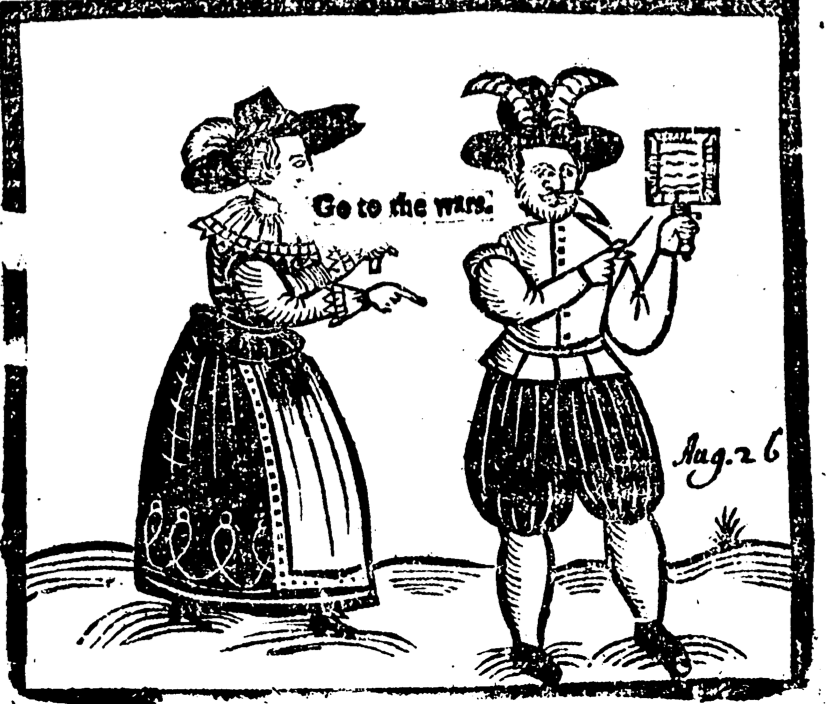Monday
As one who regularly teaches Chaucer, Shakespeare, and Restoration comedy, I am well acquainted with the word “cuckold” and all of its implications. I find I must explain to my classes why people once found hilarious scenes of men growing imaginary cuckold horns when their wives slept with other men. In cultures obsessed with masculinity, readers and audiences used laughter as a protective mechanism against emasculation insecurities.
Thus it is worth taking seriously an insult frequently employed by the American far right that splashed into headlines this past week: “cuck,” short for “cuckservative.” The anxieties revealed by the word go a long way toward explaining current rightwing politics, including Trumpism’s emphasis on “law-and-order,” firearms permissiveness, the recent missile strikes on Syria, and the many sexual assault charges leveled against Fox News’ Roger Ailes and Bill O’Reilly, not to mention Donald Trump himself. Oh, and add to that Trump’s executive order allowing the shooting of hibernating bears.
Notice how manhood issues are the common denominator.
“Cuck” showed up in the struggle that is currently engulfing the White House. According to Asawin Suebsaeng of The Daily Beast,
Donald Trump’s chief strategist Stephen Bannon has called the president’s senior advisor and son-in-law Jared Kushner a “cuck” and a “globalist” during a time of high tension between the two top aides, several Trump administration officials told The Daily Beast.
Suebsaeng draws on a Humpty Dumpty neologism (from Alice through the Looking Glass) to define cuckservative and show how it relates to “globalist”:
“Cuckservative,” a portmanteau of “cuckold” and “conservative,” has become a favorite slur on the right, used like a sexually and racially charged version of “RINO,” a Republican In Name Only. “Globalist” is a term typically used by nationalist, pro-Trump right-wingers against political opponents; however, the term has also come under fire for at times carrying anti-Semitic tones. (Kushner is Jewish.)
I’ve written two posts recently (here and here) about the sexual anxieties of white nationalists, which explains why they are drawn to such works as Jean Raspail’s 1973 fascist novel Camp of Saints. For the rest of today’s post, I look at literary references to cuckolds to see how far back the anxiety goes.
Much of the humor in Chaucer’s Miller’s Tale comes from the fact that the old carpenter marries a young woman, thereby all but asking to be cuckolded. “Who hath no wyf, he is no cokewold,” declares the miller, before launching into a bawdy story about an old man marrying a young wife:
This carpenter hadde wedded newe a wyf,
Of eighteteene yeer she was of age.
Jalous he was, and heeld hire narwe in cage,
For she was wylde and yong, and he was old
And demed hymself been lik a cokewold.
In Christopher Marlowe’s Doctor Faustus, Faustus gets revenge on a detractor by planting cuckold horns on his head. It’s good for audience laughs although it’s also emphasizes the trivial ways that Europe’s leading intellectual is using his powers:
Faust. Wilt please your highness now to send for the knight that was so pleasant with me here of late?
Re-enter the Knight with a pair of horns on his head.
How now, sir knight! why, I had thought thou hadst been a bachelor, but now I see thou hast a wife, that not only gives thee horns, but makes thee wear them. Feel on thy head.
Knight. Thou damned wretch and execrable dog,
Bred in the concave of some monstrous rock,
How dar’st thou thus abuse a gentleman?
Villain, I say, undo what thou hast done!
In Shakespeare, Othello is obsessed with the idea of wearing cuckold horns—“a horned man’s a monster and a beast”—and Desdemona pays the price. More comically, in As You Like It the lords joke around with the insult as a form of male bonding:
What should we give to the man who killed this deer?
Give him the hide and the horns to wear.
Then sing this song to send him home
(The other LORDS pick up the deer)
Don’t be ashamed to wear the horns.
They’ve been worn since before you were born.
Your father’s father wore it,
And your father endured it.
The horn, the horn, the lustful horn
Is not to be laughed at or scorned.
The humor here is that the horn is to be laughed at and scorned. There’s a kind of consolation, however, in knowing that you’re not alone in your anxieties.
I can think of no work that more thoroughly makes cuckolding its central joke than William Wycherley’s The Country Wife (1675). Horner’s name says it all: the protagonist’s mission in life is to put horns on the head of every married man. His stratagem is as bizarre as you’ll find anywhere: he pretends to have been rendered impotent by venereal disease, which allows him to penetrate the defenses of Sir Jasper Fidget, who uses him as a supposedly safe chaperone for his wife. The aptly named Pinchwife, meanwhile, goes to absurd lengths to make sure his wife does not put horns on his head.
Horner, of course, succeeds in making cuckolds of them all, and the play concludes with a “dance of the cuckolds.”
If we no longer find cuckold jokes funny, I tell my students, it’s because men no longer feel their manhood is contingent upon remaining in control of “their” women. Or at least I thought we no longer thought that way.
Given the prevalence of “cuckservative,” I can guarantee that cuckold jokes are popular amongst alt-right types. This is not a good thing.
Further note: I just discovered the “bunny ears” that people make behind the backs of others in photographs have their origin in cuckold horns. You learn something new every day.
